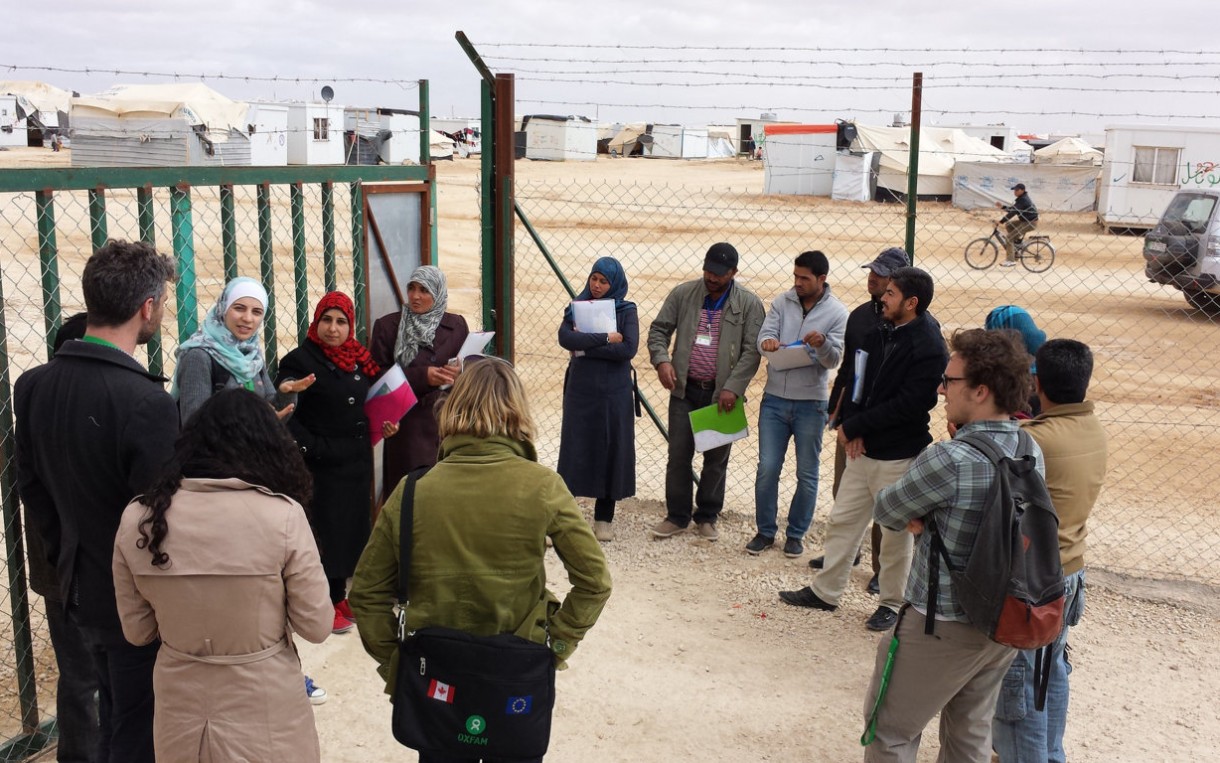Syrian refugees want to go home, but making a life at Za’atari
 People working with Oxfam at the Za'atari refugee camp in Jordan. Photo: Gawain Kripke/Oxfam America.
People working with Oxfam at the Za'atari refugee camp in Jordan. Photo: Gawain Kripke/Oxfam America.
A dispatch from Za’atari Refugee Camp in Jordan
I visited Za’atari Refugee Camp in northern Jordan, near the border with Syria, last weekend. I wanted to see what Oxfam is doing there and learn about the situation of 3 million Syrian refugees and hear their stories.
Here’s what I saw:
There I met with some Za’atari camp residents who work with Oxfam to help implement projects. They are community mobilizers and project monitors, people who keep track of delivery of services and ensure benefits – like water and paid work – are distributed fairly.
To start the conversation off, I asked them a standard question I ask groups in situations like this: “If you could say something to President Obama, what would it be?”
The most striking answer was, “Why don’t Syrian lives matter as much as other people’s to you?”
Whatever US citizens may think, these refugees felt the United States plays a big role in their conflict and they don’t understand why the US isn’t doing more. They recounted atrocities and wondered how the international community could stand by. They also mourned the fact that their children had lost four years of education due to the conflict, a gap that will affect future generations.
I also wanted to ask about two key policy issues that Oxfam has been working on in Washington and other international centers:
“Oxfam has been calling for increased resettlement of Syrian refugees to other countries, like the United States. What do you think?”
The response from the refugees was mostly negative. They said the most important thing is to solve the conflict in Syria. But a few – mostly women – quietly said that it would be good for the US and other countries to accept more refugees.
I asked if they agreed with Oxfam that all actors should work to prevent any more arms and weapons transfers into Syria, regardless which side.
To this idea, there was unanimous agreement. “Only the citizens lose.”